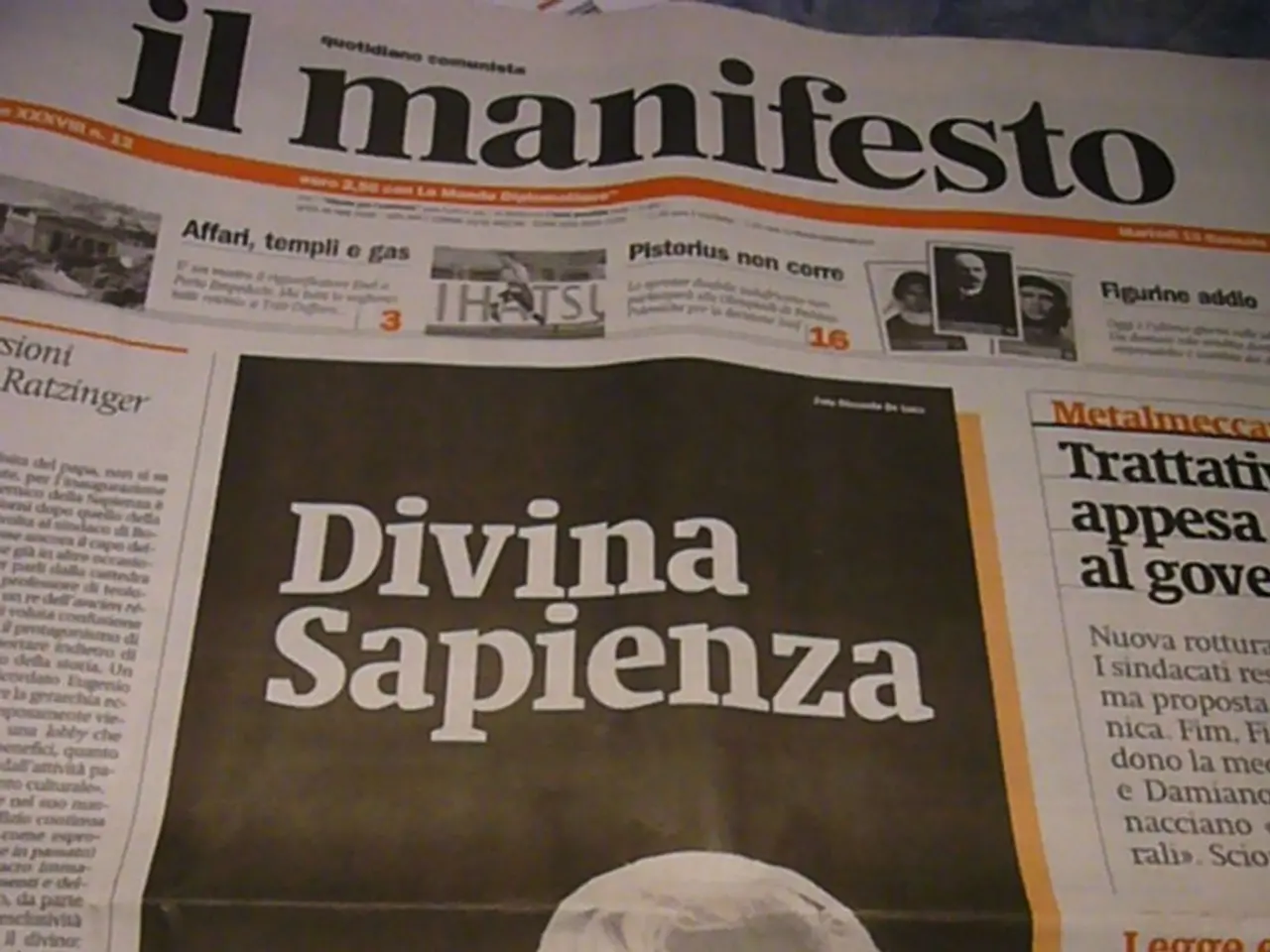Broadcasters should adhere to their public responsibility commitments, according to FCC's Carr.
In a recent development, Brendan Carr, President-elect Donald Trump's nominee for FCC chairman, has expressed his commitment to addressing collusion among companies to curb free speech. Carr aims to "smash the censorship cartel" as one of his top priorities.
Carr, in his pursuit to protect free speech, has signaled his intent to potentially have the FCC crack down on fact-checking efforts and scrutinize the use of Section 230's takedown provision by social media companies, such as Facebook. He believes that this provision allows for immunities that are not found in the statutory text.
The FCC nominee has defined the "censorship cartel" as a group that restricts free speech, though he did not specify who it consists of. Carr has specifically mentioned Facebook as a social media platform that has been accused of limiting free speech.
Carr believes that drawing the lines between disinformation and misinformation is fraught with difficulty. He criticized fact-checkers for often labeling political speech they disagree with. Carr stated that many fact-checkers are simply "narrative checkers."
Despite his stance on free speech, Carr also aims to ensure that broadcasters are held to their public-interest obligations. He believes that going back to the statute of Section 230 will put us in a better position to promote a diversity of viewpoints.
Carr has expressed his concern over the increase in censorship, particularly during the COVID-19 pandemic. He believes that this surge in censorship, particularly over the last couple of years, is unprecedented.
In a separate move, Carr announced procedures to revoke the approval of seven test labs controlled by the Chinese government due to U.S. national security concerns. He emphasized that foreign adversaries should not control labs that test devices certified for the U.S. market. However, there is no specific mention of combating a "censorship cartel" related to surveillance measures against fact-checking in the available information.
In a letter to NewsGuard, Carr expressed his view that they are part of the "censorship cartel." Carr expressed that he does not want the FCC or any entity to supervise many of these decisions, preferring instead to protect core political speech, religious speech, and scientific speech from oversight.
In conclusion, Carr's approach to the FCC chairmanship appears to be focused on promoting free speech, challenging censorship, and ensuring diversity of opinion in the digital landscape, while maintaining the public-interest obligations of broadcasters.
Read also:
- ICE directed to enhance detention conditions following NYC immigrants' allegations of maltreatment
- Israeli finance minister issues warnings about potential annexation of West Bank territories
- United States faces rebuttal from South Africa over allegedly deceitful human rights report and assertions of land expropriation
- Accident at Rodalben Results in Injuries; Geoskop Area near Kusel Affected After Stormy Weather








